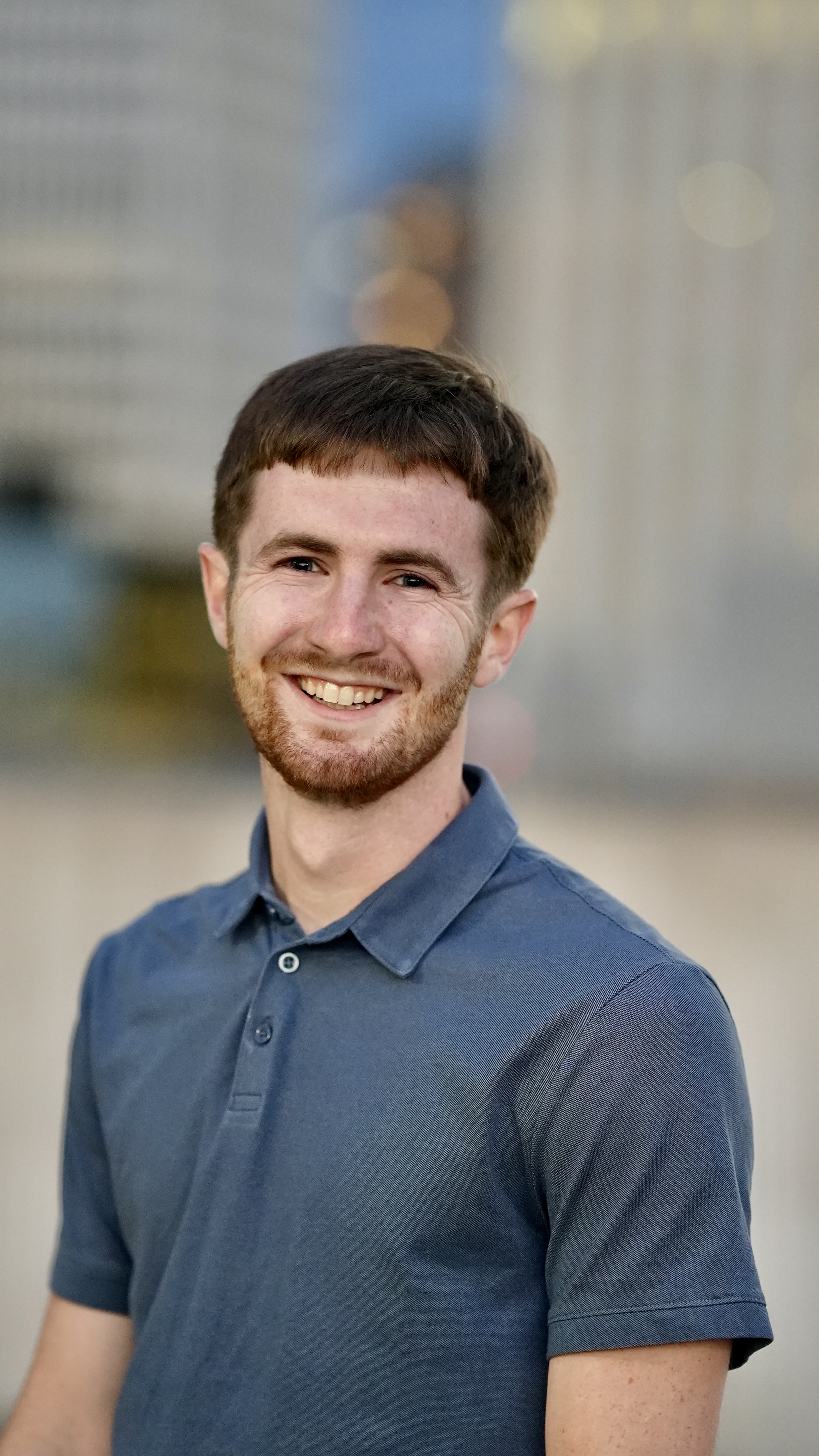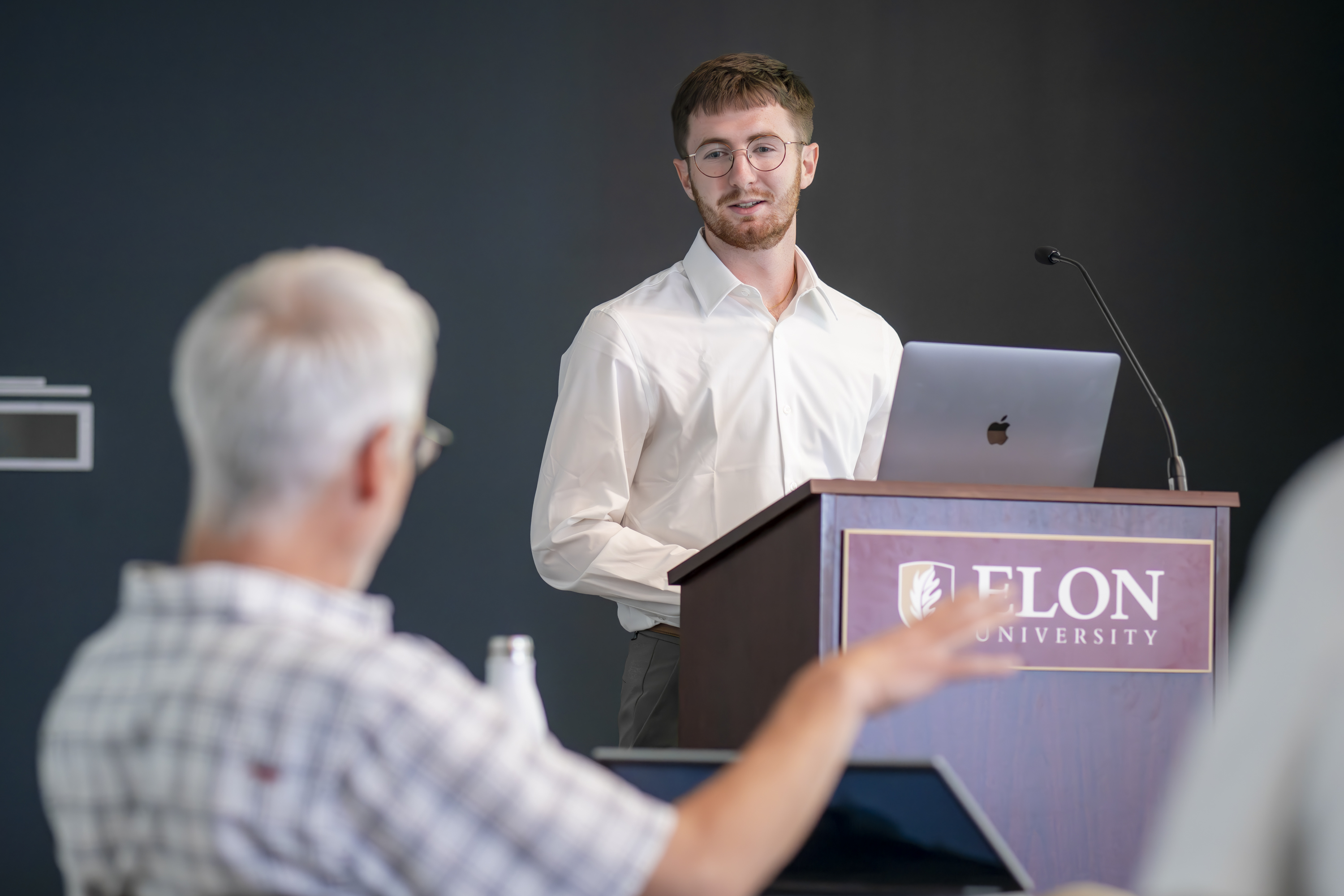Leading up to Elon University’s Spring Undergraduate Research Forum on April 29, along with Undergraduate Research Week, Today at Elon is highlighting several students presenting their research at the annual campus tradition.
Ryan Gehring ’25 had no way of knowing that his research on steel tariffs in 2018 would become so relevant in 2025 with the recent use of tariffs by President Donald Trump.
“It’s been cool because a lot of people are really excited about what I’ve been studying,” said Gehring, a double major in economics and music production & recording arts.

Gehring came to Elon as a finance major, but an economics course with Brooks Depro, associate professor of economics, changed his direction.
“I just thought the logic of economics and how you think through problems to solve them was so interesting and applicable to everyday life,” said Gehring.
And Gehring’s research is more applicable than ever right now, focusing on the 2018 steel tariffs and their impact on downstream industries, such as car manufacturing. Gehring, who is from Pittsburgh, Pennsylvania, saw the effects of the tariffs firsthand with many people in his family working for the steel mills.
“It was a huge deal that we were getting steel tariffs because that was really helping people in our community,” he said. “But I was also curious, although it helps us, there’s other people that get involved with tariffs that may be affected differently.”
This is Gehring’s first undergraduate research project, which he will present at the Spring Undergraduate Research Forum, or SURF, on April 29. During SURF, all other campus activities are suspended so the Elon community can come together around students’ creative endeavors and research efforts. Undergraduate research is also one of the five Elon Experiences, which provide a natural extension of the work students do in the classroom and ensure that Elon graduates are prepared for both graduate school and careers. This year, more than 250 students will present their work on SURF Day.
“It’s definitely been a lot of work, I don’t think I expected it to be as challenging as it has been,” said Gehring on doing his undergraduate research. “But at the same time, it definitely has been super fulfilling throughout the entire process.”
Gehring worked with Assistant Professor of Economics Mitchell Vaughn to build a regression model that uses census data that connects workers, industry and the input of intensity of steel, comparing 2017 and 2018. They found that workers in industries that use steel had a 3% wage penalty compared to those that did not.
“I’ve learned so much about tariffs through the entire process,” Gehring said. “When you look at the media and general talk about tariffs, most people don’t talk about tariffs correctly. I hope, through this research, that they can understand a bit more about how tariffs work and how there are winners from tariffs, but also losers.”
And Gehring notes that, even though there is a lot of political talk about tariffs, his research sticks to the data.
“We’re just trying to study the effects of what happened,” he said. “We’re not trying to say that one party is right. We understand that people use tariffs, whether or not we decide as economists that they’re efficient or not, we’re just trying to look at how it affects people.”



